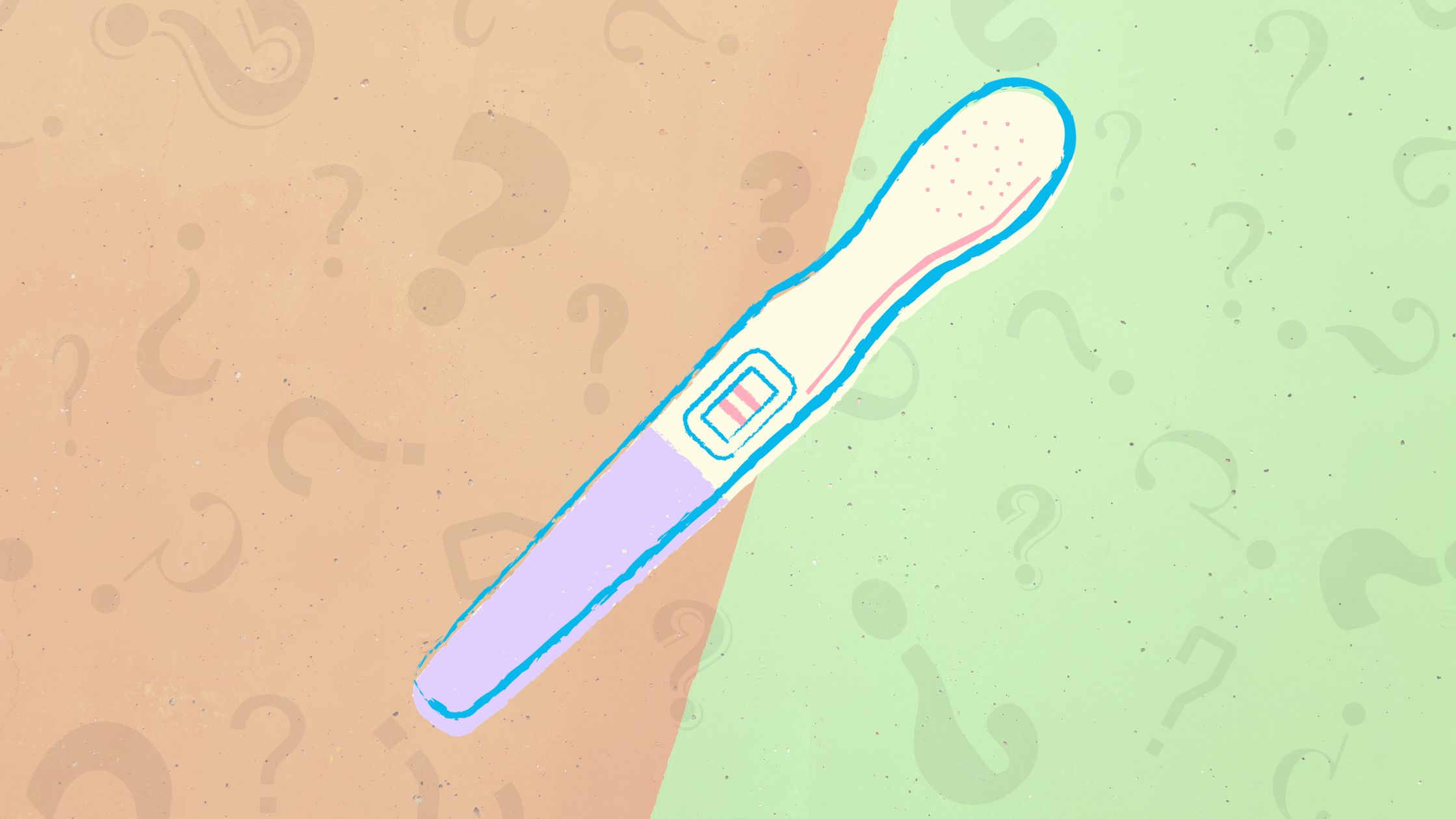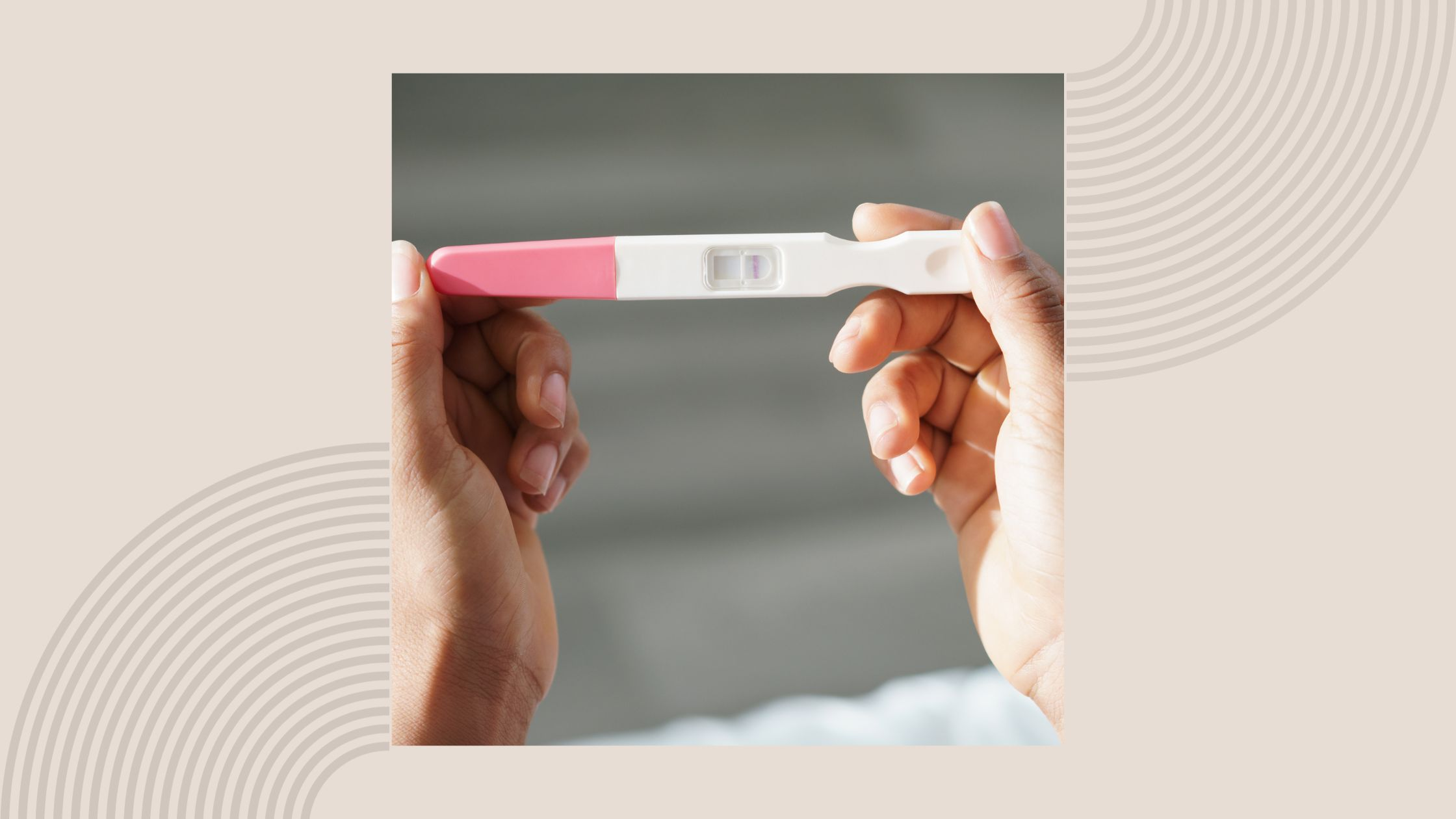Reaching 15 days past ovulation (DPO) is a significant moment for those trying to conceive. It marks the end of that nail-biting two-week wait, and the suspense is palpable. You’re probably on high alert, scrutinizing every tiny shift in your body and wondering if it’s a sign of early pregnancy. Feeling a bit of nausea or having sore boobs? Well, that might just have you doing a little jig of joy! But let’s be real, it’s not just excitement; it’s a cocktail of emotions, with a good dash of stress.
You see, around this time, you’re caught between hoping for a positive pregnancy test and the possibility of your menstrual period making an unexpected appearance. Questions like “Is this morning sickness?” or “Will the pregnancy test show two lines?” are probably playing on repeat in your mind. But here’s the silver lining: by 15 DPO, you’re on the cusp of getting those much-awaited answers. And hey, you’re in luck! We’ve got the scoop on everything you need to know about this stage. So, hang tight because you’ll likely know if you’re expecting very soon.
What Happens at 15 DPO?
When you hit 15 DPO, your body might give you some telltale signs of pregnancy. Implantation, the process where the fertilized egg cozies up to your uterine wall, has likely already happened. This typically occurs between 6 to 12 days past ovulation, with the sweet spot for most women being around 8 to 10 DPO.
By 15 DPO, if a little one grows inside, they’ve been nestled in your uterine lining for about a week. The baby, now an embryo, is busy with its cells dividing away. Some of these cells are even burrowing deeper to kickstart the formation of the placenta. And around this tiny marvel, the amniotic sac is taking shape, prepping for the incredible journey ahead.
The embryo starts producing the hCG (human chorionic gonadotropin) hormone soon after implantation. This is the star player that home pregnancy tests are looking for. So, if you’re eager to know if you’re pregnant, taking a pregnancy test around this time could give you that exciting Big Fat Positive (BFP). Especially since your periods are like clockwork, you might notice its absence around this time. Missed period is one of the earliest signs of pregnancy.
Every woman’s journey while trying to conceive is unique, but these general patterns can give you a heads-up on what to expect.
Common Pregnancy Symptoms at 15 DPO

Some women might start getting hints as early as 10 DPO, right around when implantation typically occurs. For others, these signs might be hard to get, showing up either earlier or much later. So, don’t get disheartened if 15 DPO rolls around and you feel no different. Your journey to that positive pregnancy test result might just be taking a scenic route.
If you’re trying to conceive (TTC), chances are you’re on high alert by 15 DPO. Every twinge, an unexpected aversion to a smell, or just any odd sensation might make you wonder, “Is this it? Am I pregnant?” You’re definitely not alone in this detective work.
Here’s the tricky part: the symptoms at 15 DPO can be sneaky. They’re so vague that they might just be PMS playing tricks on you, or perhaps symptoms of PCOS, or just the usual period shenanigans. This ambiguity can be even more pronounced if your cycles aren’t regular.
However, it’s worth noting that the game of symptom-spotting can begin as early as 7 or 8 DPO, thanks to those sneaky pregnancy hormones. So, while looking for pregnancy symptoms is exciting, remember that every woman’s experience is unique. Stay hopeful, and remember that the journey to motherhood is filled with twists, turns, and a lot of mystery!
Here are some common early pregnancy signs at 15 DPO:
1. Spotting or Bleeding
You might witness implantation bleeding if you’re spotting or seeing some light bleeding around 15 DPO. This can sometimes be mistaken for the start of a period, but there’s a catch. Implantation bleeding typically occurs 10 to 14 DPO and can last from a few hours to a few days.
Now, if you’re scratching your head trying to figure out if it’s implantation or period bleeding, here’s a tip: check the intensity. Implantation bleeding is usually lighter and might just show up as a faint tinge on your toilet paper or underwear. So, if it’s more of a subtle hint rather than a full-on flow, you could be looking at a sign of early pregnancy.
2. Cramping
After implantation, it’s not uncommon to feel some mild abdominal cramps. While they might remind you of menstrual cramps, they’re usually less intense. This cramping isn’t just a random ache, though. It’s actually due to the increased blood flow to your uterus, gearing up to support the growing fetus. So, if you’re feeling a bit crampy but it’s not quite like your typical period pains, it could be a sign that there’s a little one on the way!
3. Fatigue
Growing a baby is no small feat, and it can take a toll on your energy levels! If you’re feeling more tired than usual or downright wiped out, it’s not just you being lazy. Fatigue and exhaustion are common pregnancy symptoms. Blame it on the surge in progesterone and the extra blood your body’s churning out to support the little one. So, if you’re constantly feeling like you could use a nap, it might be because there’s some baby-making magic happening inside!
4. Sore Breasts
If you’ve noticed your boobs feeling more tender and sensitive lately, you’re not imagining things. Thanks to those rising progesterone levels, your breasts might swell up a bit, and even the areola, the dark area around your nipples, can take on a deeper shade at 15 DPO. These changes are all part of the hormonal rollercoaster your body’s riding, prepping for the exciting journey ahead.
5. Nausea
Feeling a bit queasy or even finding yourself making unexpected trips to the bathroom to vomit? Blame it on the surge in hCG levels. While this unsettling sensation is famously dubbed “morning sickness,” it’s a misnomer because it can strike any time of day. And while it’s a common symptom, the exact reasons for this nausea remain a bit of a mystery.
6. Headaches
If you have headache that won’t quit, it’s likely due to the surge in pregnancy hormones coursing through your body. While these headaches can be a real pain in the neck (or head), they’re a common sign of pregnancy. A glimmer of hope is that as your body gets the hang of these hormonal changes, those aches will gradually ease up. So, while it might be a bit of a bumpy ride now, hang tight; smoother days are on the horizon!
7. Frequent Urination
If you find yourself dashing to the bathroom more often than usual, it’s not just you being extra hydrated. In early pregnancy, your body craves extra fluids, putting your kidneys on overdrive. And that frequent urge to pee? You can point your finger yet again at increased hCG levels.
8. A Heightened Sense of Smell
A whopping two-thirds of pregnant women report having a supercharged sense of smell. If you’re getting whiffs of weird smells out of the blue, it might just be one of those early pregnancy symptoms. While the exact reason behind this olfactory boost remains a bit of a mystery, most fingers point to those ever-increasing pregnancy hormones.
9. Increased Basal Body Temperature (BBT)
If you’ve been watching your basal body temperature (BBT), you might’ve noticed it spikes during ovulation and then dips when your period rolls around. But here’s the interesting bit: if that egg gets fertilized and you’re on the road to baby town, your BBT won’t drop as expected. Instead, it’ll stay elevated, thanks to the surge in progesterone and estrogen in your body. So, if you’re seeing a consistently high BBT, it might be one of the early signs from your body that a baby’s on the way!
At 15 DPO is Your Period Considered Late?
Not really. The luteal phase, which is the time between ovulation and your next period, typically spans 12-14 days. So, by the time you hit 15 DPO, if you’re not pregnant, you’d usually expect your period to have shown up, making this day the first of your missed period.
However, Mother Nature likes to keep things interesting. For some women, the luteal phase can vary, lasting anywhere from 9-16 days. This variability, especially if you’re one of the many women whose cycles don’t run like clockwork, can throw a wrench in tracking ovulation, especially if your cycles are shorter, longer, or just plain unpredictable.
But don’t fret! Tools like fertility monitors can help take the mystery out of pinpointing your ovulation, making the journey a bit easier.
Can You Take a Pregnancy Test at 15 DPO?

Thinking of taking a pregnancy test at 15 DPO? Go for it! If you’re pregnant, the egg has already implanted by this time, usually happening between 8-10 days past ovulation. This event signals your body to start producing hCG, the hormone that pregnancy tests detect. Most home pregnancy tests are pretty sensitive and can pick up even tiny amounts of hCG. So, by 15 DPO, you stand a good chance of getting a reliable result.
A few pro tips for testing:
- Test first thing in the morning. That’s when your urine is packed with the highest hormone levels.
- Patience is key! Wait the recommended time before checking the result.
- Double-check the test’s expiration date and storage conditions.
- Even a faint line can indicate a BFP. If you’re in doubt, test again in a few days. The line should darken as hCG levels rise.
However, don’t lose hope if you get a negative result. Your hormone levels might just be playing catch-up, or perhaps you ovulated a bit later than you thought. If there is still no period, test again in a few days. In the meantime, try to relax and distract yourself.
What if You Test Negative at 15 DPO, But Still Have No Period?
If you take a pregnancy test at 15 DPO and it’s come back negative, don’t jump to conclusions just yet. Every woman and every pregnancy is unique. Sometimes, if implantation occurred later than the usual 8-10 DPO, your hCG levels might still be too low for a home test to pick up.
Missing a period is often the first sign of pregnancy for many women, but a negative pregnancy test doesn’t always mean you’re not pregnant. It’s a tough waiting game, but give it a few more days and try testing again. If you’re pregnant, those hCG levels will rise as time passes, making the test’s detection easier.
However, if your period remains elusive and you consistently get negative results, it might be time to see your doctor. While it’s rare, some women don’t get a positive result with a home pregnancy test. In such cases, a blood test can provide a more definitive answer.
What if You Tested Positive at 15 DPO, But There Are No Symptoms?
You’re still in the early stages of pregnancy at 15 DPO. If you’re not experiencing any symptoms, don’t worry! Every woman’s journey is unique. Some might start noticing pregnancy symptoms as early as 8 DPO, while others might feel completely normal even at 4 weeks pregnant.
In fact, many women don’t feel any different until about six weeks in, when morning sickness often kicks in. And here’s a comforting thought: the severity of your symptoms doesn’t reflect your baby’s health. So, if you’re symptom-free, just take a deep breath and relax.
If you’ve already tested positive, congrats! If not, and you’re still curious, you can always retest in a few days or consult your healthcare provider for a blood test. And remember, if you experience any unusual bleeding after a positive pregnancy test, you must contact your doctor.
What Does a Faint Line on a Pregnancy Test Indicate at 15 DPO?

A faint line on a pregnancy test could mean a few things. If you notice a faint line on your pregnancy test at 15 DPO, it might indicate a pregnancy with hCG levels that haven’t fully risen yet.
A faint line could also just be an evaporation line, which pops up if the test is left out longer than recommended. That’s why sticking to the test’s instructions is super important. If you spot a faint line within the test’s suggested timeframe, there’s a good chance you’re pregnant. Give it a few more days, retest, and if that line becomes bolder – congrats, it’s celebration time!
However, if you’re still unsure, it’s always wise to consult with a doctor and opt for a blood test for a definitive answer. Remember, while symptoms hint at pregnancy, they can also be misleading as they might signal an upcoming period.
Can Implantation Bleeding Happen on 15 DPO?
If you notice spotting at 15 DPO, it could still be late implantation bleeding. However, if the flow feels as heavy as your typical period, it’s probably not implantation bleeding but rather your period kicking in. And, just a heads up, if you experience clots, heavy bleeding, and cramping, it might indicate an early pregnancy loss. So, always keep an eye on what your body’s telling you.
Takeaway
- Some women notice early pregnancy symptoms like bleeding and cramping by 15 DPO.
- The 15th DPO is typically when a period is considered officially late.
- Taking a home pregnancy test on the 15th DPO can yield a fairly accurate result.
- A negative result on the 15th DPO doesn’t rule out pregnancy; it’s advisable to wait a few days and test again due to potential rising hCG levels.
- A faint line on a pregnancy test at 15 DPO suggests possible pregnancy but with slightly low hCG levels. It’s recommended to retest in a couple of days.
References
Wilcox, A J, et al. Natural Limits of Pregnancy Testing in Relation to the Expected Menstrual Period. JAMA, U.S. National Library of Medicine, 10 Oct. 2001, www.ncbi.nlm.nih.gov/pubmed/11594902.
Chard, T. Pregnancy Tests: a Review. Human Reproduction (Oxford, England), U.S. National Library of Medicine, May 1992, www.ncbi.nlm.nih.gov/pubmed/1639991.
Implantation Bleeding: Normal in Early Pregnancy? Mayo Clinic, Mayo Foundation for Medical Education and Research, 9 May 2019, www.mayoclinic.org/healthy-lifestyle/pregnancy-week-by-week/expert-answers/implantation-bleeding/faq-20058257.
Wilcox AJ, Baird DD, Weinberg CR. Time of implantation of the conceptus and loss of pregnancy. N Engl J Med. 1999 Jun 10;340(23):1796-9. doi: 10.1056/NEJM199906103402304. PMID: 10362823.

